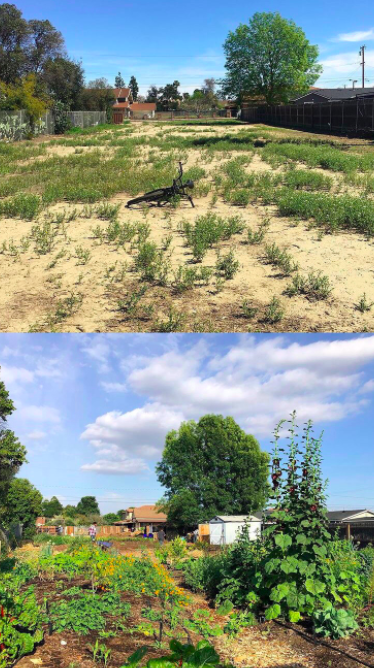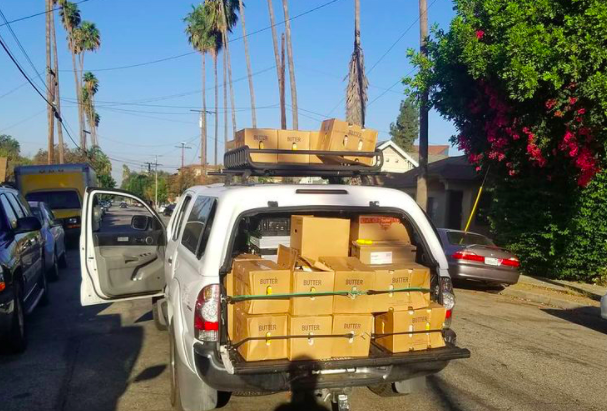 Vacant Lot post industrial waste cleanup (2017) versus blooming garden full of life (2021)
Vacant Lot post industrial waste cleanup (2017) versus blooming garden full of life (2021)The constant failure of the federal government to provide access to healthy affordable options to low-income communities forces the establishment of urban community gardens in areas that are needed the most specifically in the cities surrounding Claremont. Community gardens stem as a form of collective resistance from a long history of food insecurity, and poverty. In California, specifically the Inland Empire, vacant lots have been left behind with industrial waste that not only pollute our cities, but contribute to respiratory illnesses, heart problems, and cognitive deficits. These vacant lots abandoned by the industrial sector must be turned into community gardens initiatives in order to provide autonomy and agency to communities that have been robbed of their joy.
Utilizing food as an organizing strategy in low-income suburban areas, specifically the city of Pomona where I grew up, arms communities with the tools to create alternate systems that do not rely on the Agribusiness profit driven model. A Scripps class that I enrolled in that truly practiced solidarity was a class called Race, Plants, and Magic, where we learned about the different mutual aid efforts occurring in the city of Pomona. It becomes vital that institutions such as Scripps and the Claremont Colleges provide resources that will support and help sustain community gardening efforts in the city bordering Claremont – Pomona, where working-class families are struggling to feed their children and locate access to fresh produce.
Community led gardens in Pomona have been able to provide pesticide free weekly boxes to elders and families that have been impacted by the pandemic. Without the patience and dedication of each hand that went into crafting these boxes it would not have been possible to continue forms of communal care which are rendered impossible by this capitalist system where everything is perceived as a monetary transaction.
 Community grown pesticide-free produce boxes delivered weekly to low-income families in Pomona
Community grown pesticide-free produce boxes delivered weekly to low-income families in Pomona
When communities become empowered and recognize that violence is a symptom of poverty, the impossible becomes possible. Communities organize and realize that strength lies in numbers and begin to branch out and create new ways of navigating oppressive food systems that would rather lose money that feed those that need the food the most. May we continue to take over every vacant lot that has polluted our cities and restore life where it once lived in both the land and in our souls.



